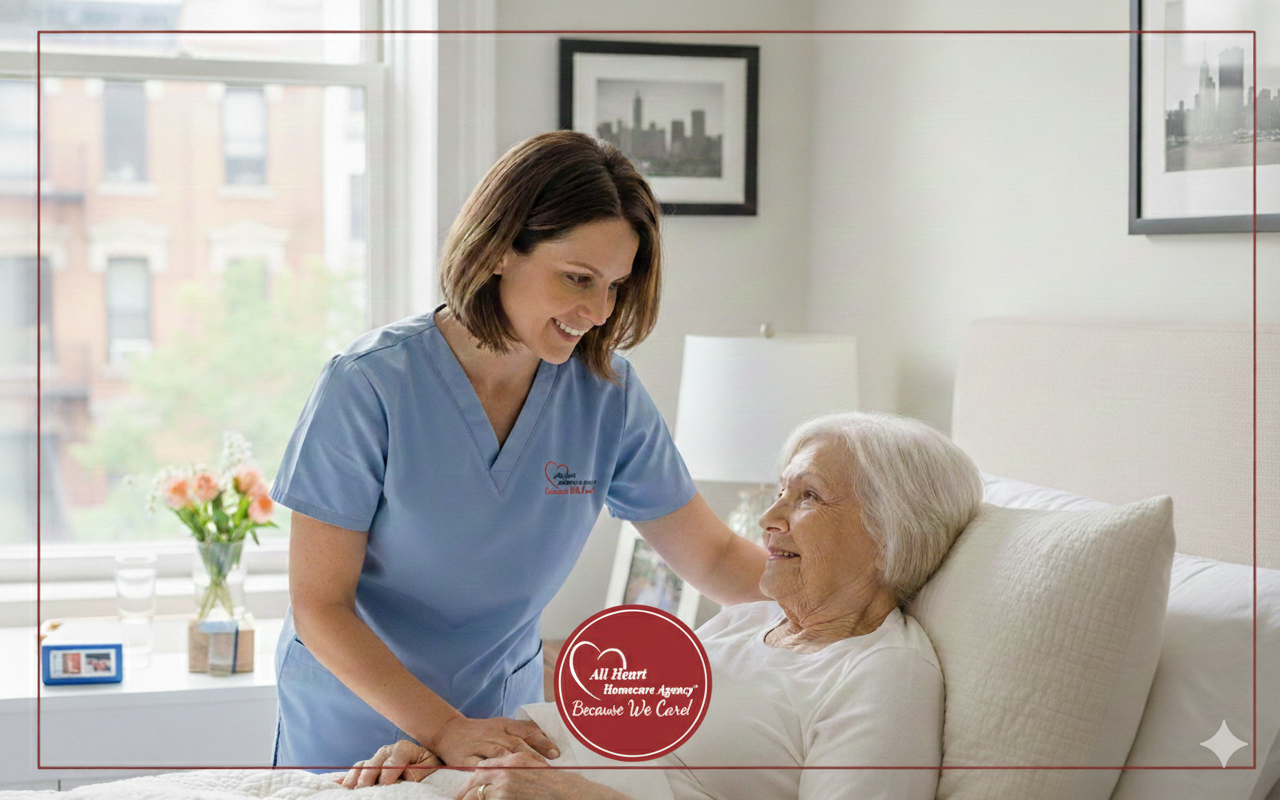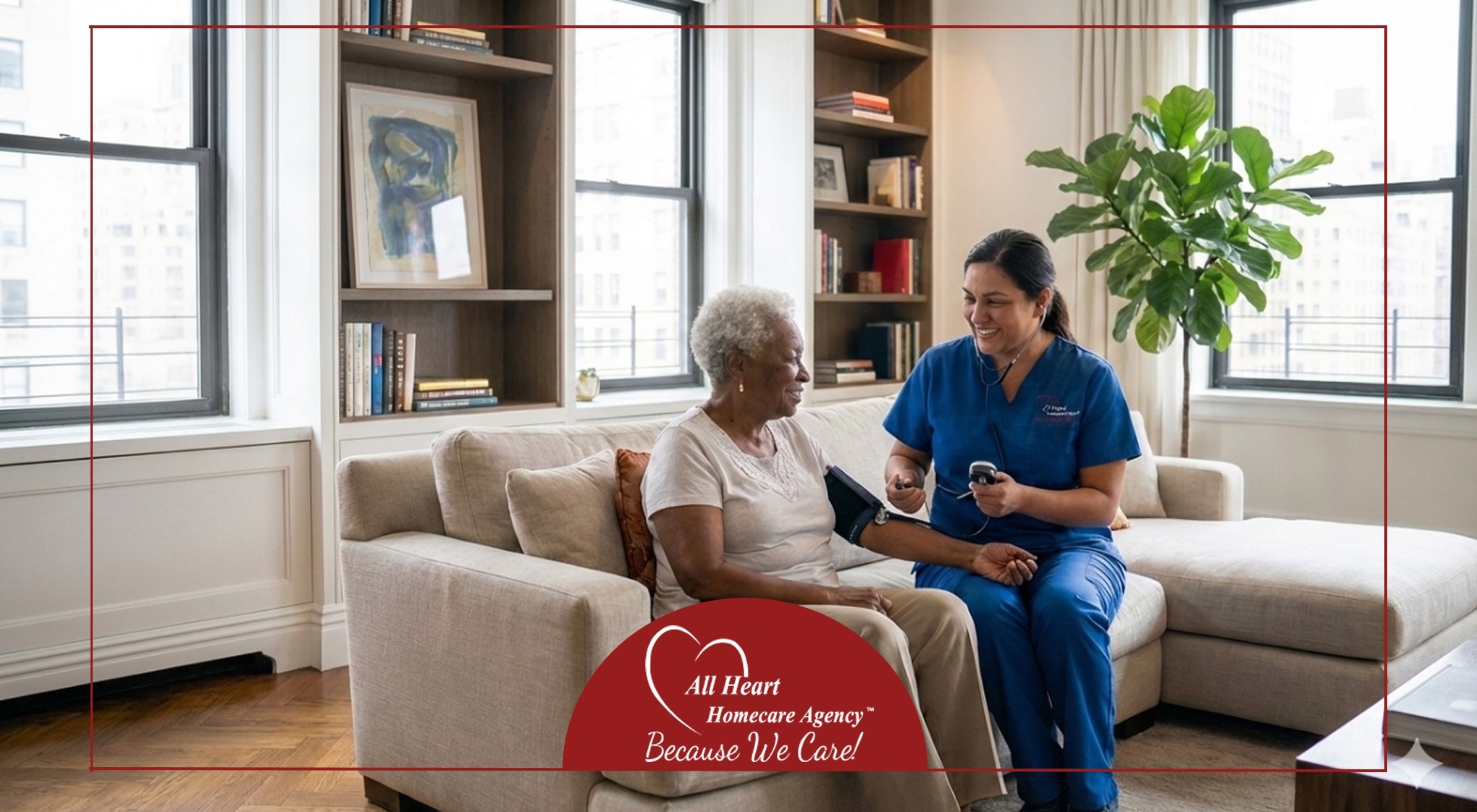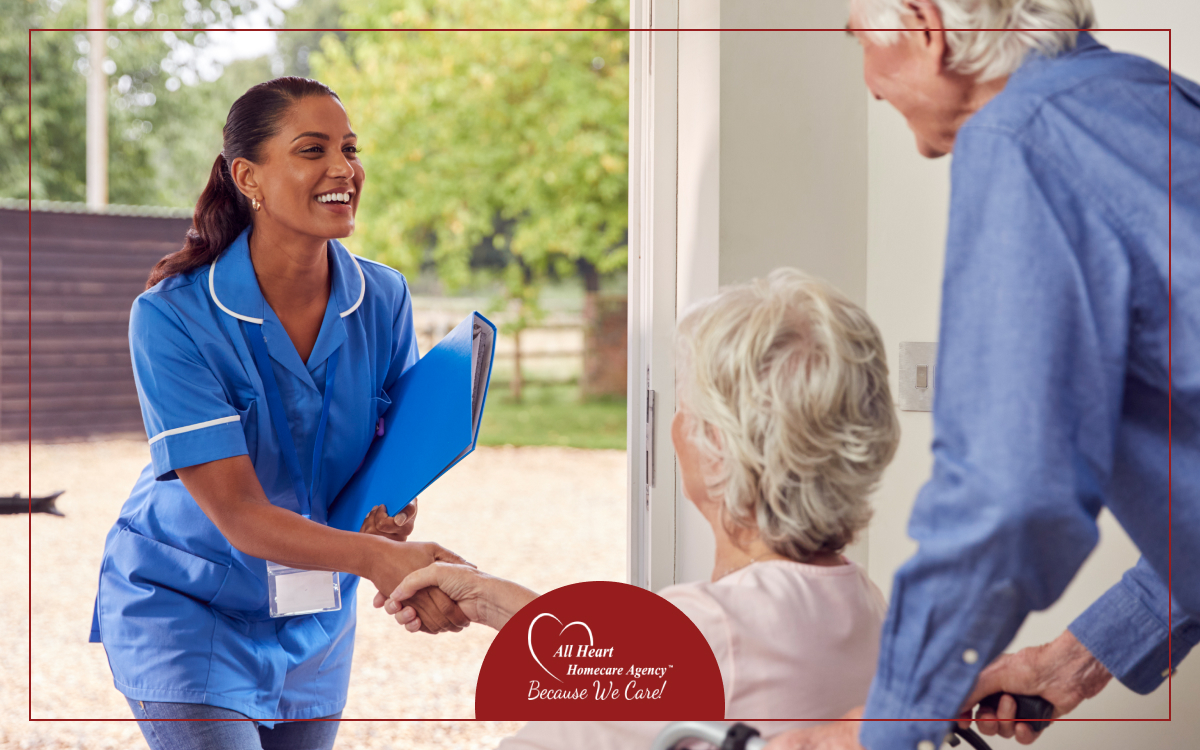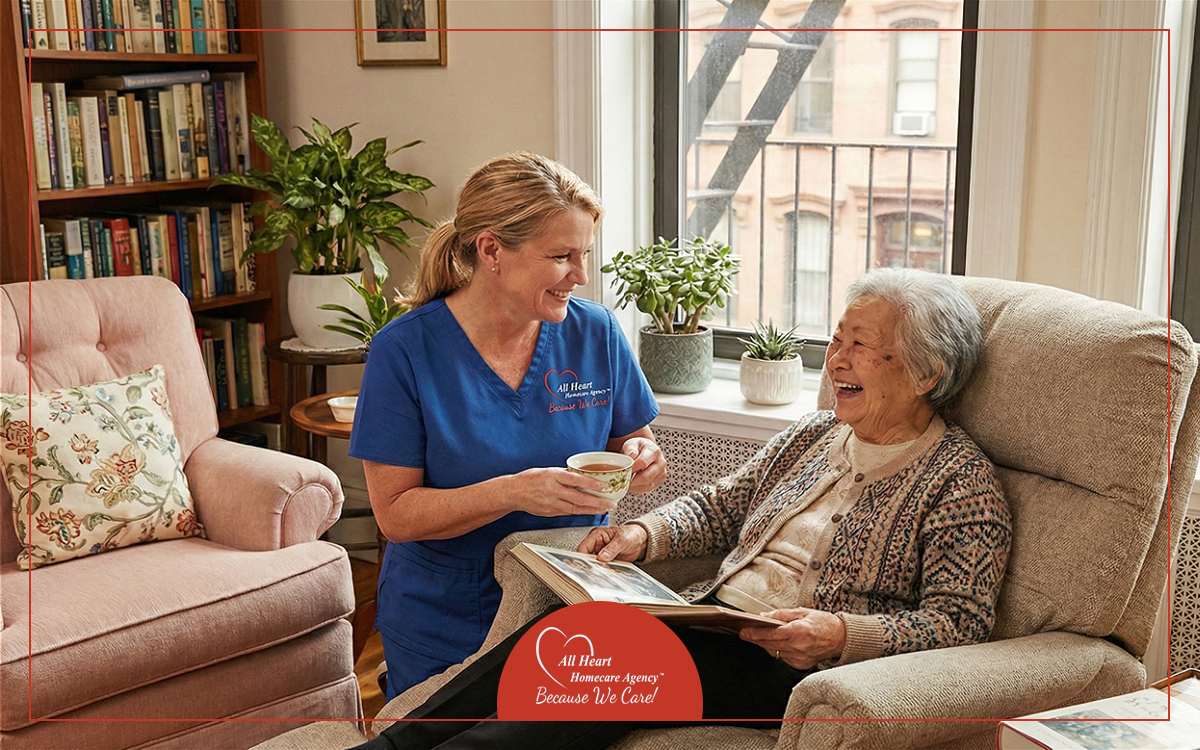What is in-home physical therapy for seniors, and how does it help?
In-home physical therapy allows seniors to work on strength, balance, and movement without leaving home. Instead of traveling to appointments, a licensed therapist comes to them and focuses on the movements that matter most in daily life, getting out of bed, walking safely, using stairs, or recovering after surgery. It often feels more comfortable and less intimidating, especially for older adults who tire easily or feel unsteady outside the home. For many seniors, this kind of therapy supports confidence, independence, and a safer return to normal routines.
For older adults, movement is more than just exercise—it is the foundation of independence, dignity, and quality of life. Yet with age, everyday tasks such as standing, climbing stairs, or walking across a room can become challenging. These struggles often lead to reduced confidence and increased risk of injury.
Fortunately, physical therapy at home for seniors provides an effective way to restore strength, improve mobility, and promote recovery—all without the stress of traveling to a clinic. This guide explores the benefits of in-home care, the challenges seniors face, and the role of caregivers and families in creating lasting independence.
The Importance of Home Physical Therapy for Seniors
Comfort and Safety in a Familiar Environment
For many seniors, leaving the house for appointments can feel overwhelming. In-home PT for seniors eliminates travel-related stress and allows rehabilitation to take place in a familiar, comfortable environment. Therapists can also adapt exercises to the senior’s actual living space, ensuring real-world functionality.
Supporting Independence and Dignity
The goal of mobility therapy at home is not only to facilitate recovery but also to build confidence in daily routines. Practicing movements where seniors live—whether getting in and out of bed, navigating stairs, or cooking in the kitchen—empowers them to stay independent and maintain dignity.
Common Mobility Challenges in Older Adults
Arthritis and Joint Pain Management
Arthritis is one of the most common conditions affecting older adults. Pain and stiffness often limit motion. With home rehabilitation for the elderly, therapists provide targeted stretching and strengthening routines that reduce discomfort and increase range of motion, helping seniors stay active.
Recovery After Surgery or Injury
Procedures like knee or hip replacement require structured rehabilitation. Physical therapy at home for elderly patients ensures consistent progress without the stress of traveling to clinics. Recovery plans are personalized, supporting both physical and emotional well-being.
Preventing Falls and Improving Balance
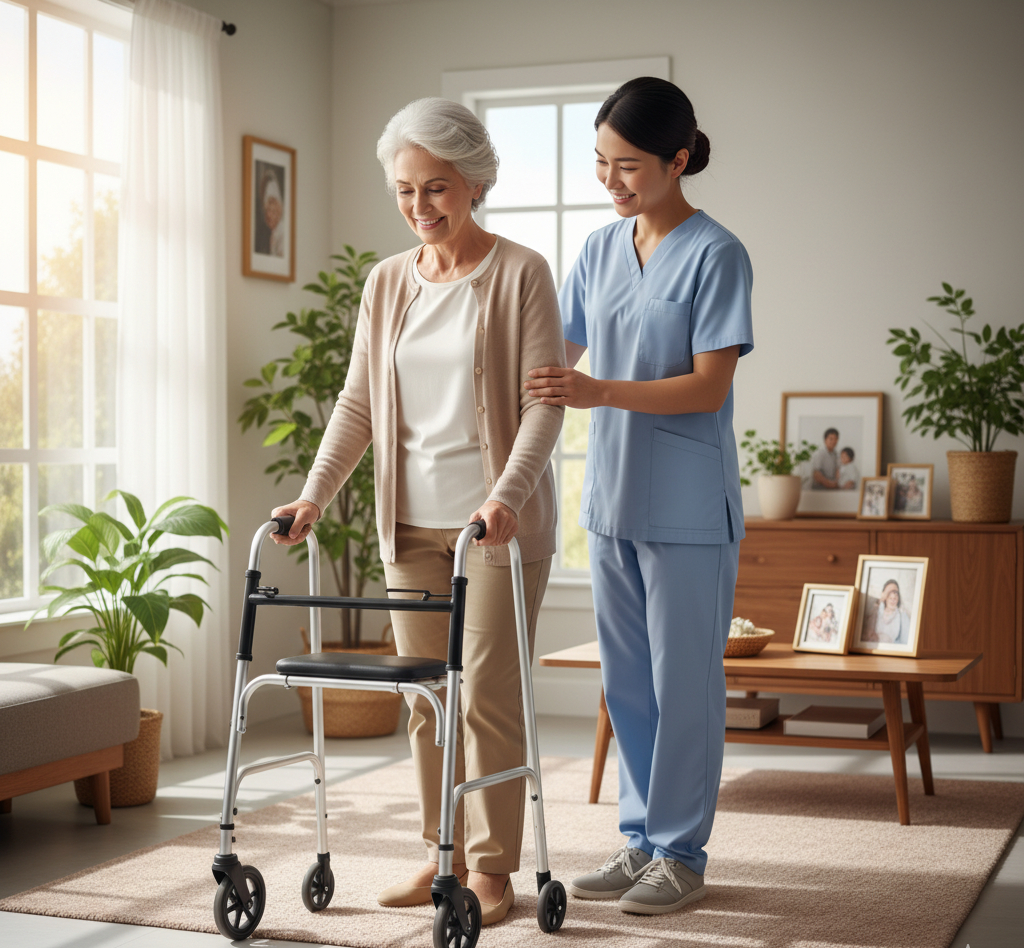
A fall can be a significant concern for older adults, often resulting in serious injuries and a loss of independence. In-home rehabilitation offers a practical solution, providing care in a comfortable and familiar setting. Skilled therapists assess balance, gait, and the home environment to identify potential risks. Based on this evaluation, a personalized care plan is created with exercises aimed at improving stability and core strength, helping to reduce the likelihood of future falls. The convenience of receiving support at home also allows for practical guidance tailored to the unique layout and challenges of the living space, promoting safety and confidence.
How Professional Caregivers Support Senior Recovery
Licensed, Experienced, and Compassionate Care
Recovery is safest and most effective when guided by licensed physical therapists who bring clinical expertise and experience to every session. At the same time, compassionate caregivers play a vital role by offering encouragement, assisting with daily needs, and helping seniors stay consistent with their therapy routines. This combination of professional therapy and caregiver support ensures seniors feel safe, motivated, and cared for throughout their recovery.
Family-Centered Approach to Therapy at Home
Family involvement plays a vital role. Caregivers often teach families safe ways to support exercises, ensuring continuity between therapy sessions. This collaborative model leads to stronger outcomes and greater peace of mind.
Key Benefits of In-Home Physical Therapy
- Improving Mobility and Confidence
With personalized guidance, mobility therapy at home strengthens muscles, improves balance, and reduces fear of falling, helping seniors move with confidence. - Faster Recovery and Reduced Hospital Visits
In-home rehabilitation services speed up healing by providing consistent, one-on-one therapy. They reduce complications, lower the chance of hospital readmissions, and ensure smoother recovery. - Encouraging Independence in Daily Activities
The biggest measure of success is seeing seniors manage daily life again. With physical therapy at home for elderly adults, routines like bathing, cooking, and walking become safer and easier, restoring autonomy.
Practical At-Home Physical Therapy Exercises for Seniors
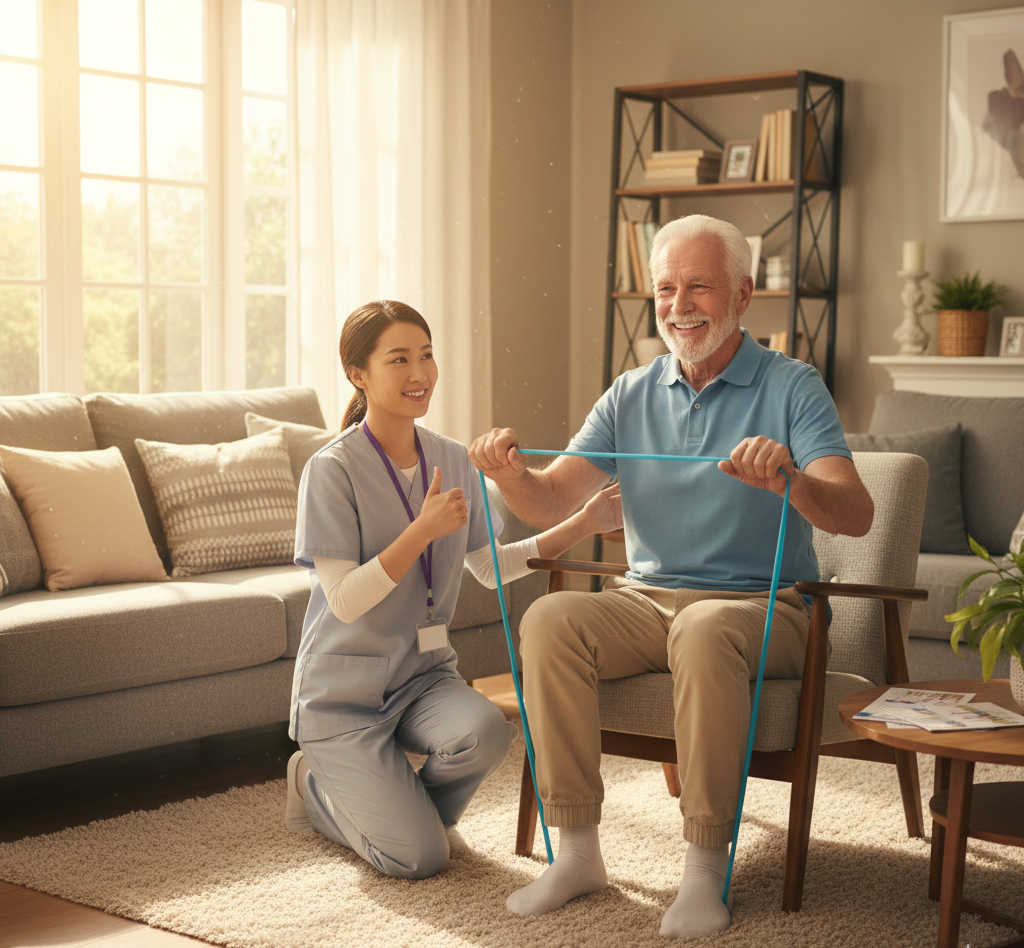
| Exercise Type | Description |
| Gentle Stretching and Flexibility | Stretching routines for the neck, back, and legs help reduce stiffness, maintain flexibility, and prevent injuries. |
| Balance and Walking Exercises | Simple exercises such as heel-to-toe walking and supported standing improve coordination and stability, helping prevent falls. |
| Safe Use of Household Items for Therapy | Everyday items like chairs, countertops, and light objects can be used for sit-to-stand exercises, balance support, or light strengthening. |
*Disclaimer: Always consult a licensed professional before starting any new exercises.
The Role of Family in Supporting Senior Therapy
Encouraging Motivation and Emotional Well-Being
Recovery can be slow at times. Family encouragement—celebrating small victories and offering emotional support—helps seniors stay committed to their therapy.
Partnering with Caregivers for the Best Results
By observing therapy sessions, family members gain valuable insights and learn safe, effective techniques to help reinforce exercises at home between visits. This hands-on involvement empowers caregivers to play an active role in the rehabilitation process, ensuring exercises are practiced consistently. Partnering closely with caregivers not only promotes steady progress but also provides the ongoing support participants need to build confidence and achieve their goals over time.
Selecting a Home Care Partner to Support You and Your Family Through Physical Therapy and Recovery
What to Look for in a Trusted Agency
When selecting a home care partner to assist with physical recovery, it’s essential to prioritize agencies that demonstrate professionalism, expertise, and a genuine commitment to patient well-being. Look for an agency with a strong track record of success, supported by positive testimonials from other families and caregivers. Verify the qualifications and certifications of their staff to ensure they have the expertise needed to provide high-quality care. Transparency is key—trusted agencies openly communicate about their services, pricing, and care plans, and are readily available to answer your questions. Additionally, flexibility is a vital factor; the agency should be able to adapt its care approach to meet the evolving needs of your loved one during recovery. Lastly, consider their ability to provide consistent communication and updates, as well as resources for caregivers to stay informed and involved in the recovery process.
Why Compassion and Cultural Sensitivity Matter in the Recovery Process
Compassion and cultural sensitivity play a pivotal role in fostering a supportive and effective recovery environment. Recovery can be a challenging physical and emotional journey, and a compassionate home care team helps patients feel valued, understood, and motivated. This empathetic approach reduces feelings of isolation and anxiety, which could otherwise hinder progress. Furthermore, cultural sensitivity ensures that care is delivered in a manner that respects and acknowledges individual backgrounds, traditions, and values. For families of diverse cultural backgrounds, including Russians, Hispanics, and Americans, culturally appropriate care can strengthen trust and cooperation between caregivers and patients. A home care partner that values compassion and cultural sensitivity demonstrates a deep dedication to their mission of helping families achieve successful and holistic recovery outcomes.
Conclusion: Restoring Mobility, Recovery, and Independence
Aging does not have to mean losing independence. With physical therapy at home for seniors, older adults can recover from surgery, manage arthritis, prevent falls, and continue living with dignity.
In-home PT for seniors combines safety, convenience, and personalized care, while home rehabilitation for the elderly provides long-term improvements in strength, balance, and confidence. More than just exercise, this form of care restores hope, prevents setbacks, and empowers seniors to live fully.
Aging can bring challenges, but with the right support, seniors can continue living safely, comfortably, and with dignity in their own homes. At All Heart Homecare, we focus on providing compassionate caregivers who assist with daily activities, offer companionship, and ensure your loved one feels supported every step of the way. If your loved one could benefit from trusted in-home care services, All Heart Homecare is here to help. Our experienced team is dedicated to delivering personalized care that promotes independence, comfort, and peace of mind for families. Contact us today for a free consultation and let us be your partner in supporting your loved one with all our heart.



